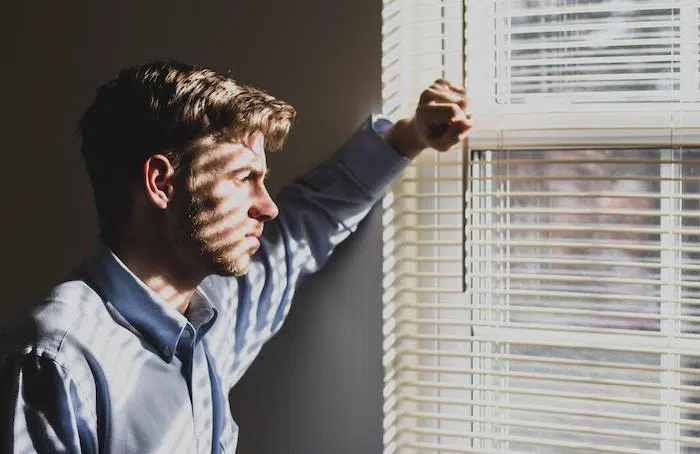Managing Anxiety During the COVID-19 Pandemic

The ongoing COVID-19 pandemic has uprooted many aspects of our daily lives. The coronavirus has increased our concern for our health and the health of those we love. The challenges we face about our kids, our jobs, and the future can leave even the calmest people feeling anxious.
If you were already living with anxiety, the COVID-19 pandemic may have made things even worse. That’s why the team at Thriving Center of Psychology recommends that everyone make their mental health a priority and continue to follow the COVID-19 protocols offered by the Centers for Disease Control and Prevention to stay healthy.
Why anxiety is high
The COVID-19 pandemic is an ongoing situation. Because so much is still unknown about the virus, there’s a lot of fear surrounding it throughout the United States and the world. You may feel fearful or even angry about your children being in school, about your parents’ health issues, and about your own safety.
And because of social distancing requirements, you may feel isolated, which could trigger an increase in anxiety or depression. Financial stress may also be a focal point if you have lost your job or have a business that’s in danger of closing. And if you do have a job, you may be concerned about going due to potentially exposing yourself to the virus.
Many people are experiencing common side effects of the pandemic, such as:
- Loss of appetite
- Difficulties concentrating
- Changes in sleep patterns
- Worsening of existing chronic illnesses
Fortunately, there are things you can do to help relieve any anxiety you may have.
How to keep your anxiety in check
There are a number of things you can do to help keep any fear or anxieties you may have at bay and protect your mental and physical health. The Thriving Center of Psychology providers recommend the following tips:
Take a media break
A good way to prevent unnecessary anxiety is to limit or take a break from media of all kinds. Stop watching the news. Engage in a relaxing hobby instead of scrolling through social media. Try reading a good book or spending time in the backyard.
Increase your physical activity
To quickly release stress and anxiety, hop on a treadmill or take the kids out on a bike ride. Physical activity is not only good for your physical body, but it’s essential for your mental health. Even low-impact activities, such as a long walk or a quick hike, can help clear your mind and steady your nerves.
Eat nutritious foods
While life at home during the COVID-19 pandemic may be even more chaotic than usual, it’s still important that you take some time to plan and prepare healthy meals. Leave takeout for a special treat, and don’t fill up the shopping cart with junk food. The better you eat, the better you’ll feel.
Get to bed on time
Even if your schedule is more flexible than usual, it’s important that you stick to a bedtime routine to ensure quality sleep. Go to bed and wake up at the same time each day. Avoid using electronics at least one hour before bed, so you have time to wind down before falling asleep.
Stay connected to your doctor
If you’re feeling sick, contact your doctor right away to discuss getting tested for COVID-19. If you have existing health issues, be sure to keep up with regular checkups. By staying in communication with your health provider, you can worry less about your physical health while protecting your mental health.
Reach out for help
If your anxiety gets out of control and interferes with your daily life, reach out to the team at Thriving Center of Psychology for help. The experienced psychologists are available for in-office and online video teletherapy appointments.
They can help you address your anxieties with cognitive behavioral therapy, psychotherapy (talk therapy), and other techniques before the situation worsens.
To schedule a consultation, book an appointment online or over the phone with Thriving Center of Psychology today.

Finding a Bilingual Therapist in New York City
a city where people speak over 200 different languages, finding a bilingual therapist in New York is more than a convenience – it can be a game-changer for mental health

The Link Between Social Media and Depression
In today’s world, scrolling through social media is as routine as brushing our teeth. We open apps out of habit — on the train, in bed, while waiting in line. Platforms like Instagram, TikTok, and Facebook keep us connected, informed, and entertained.

Signs Depression is Taking a Toll on Your Relationship
Depression can impact every part of a person’s life, from their work to their romantic relationships. Dealing with depression can take its toll on both the person with depression and the supporting partner. If you’re worried that depression is affecting your relationship, understanding its impact is an important first step.

Anxiety Attack and Panic Attack Differences
’s easy to mix up anxiety and panic attacks. While anxiety attacks and panic attacks do have overlapping symptoms, they are different. Let’s get into the differences between anxiety and panic attacks so you can be in a better position to get the help you need.




